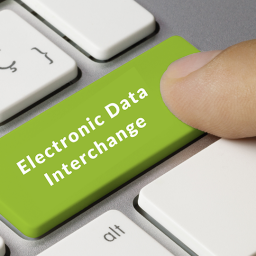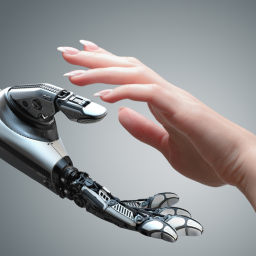
“None of us is as smart as all of us.”
This was said by leadership Guru Ken Blanchard. If you think a bit, he was just rephrasing the basic concept of democracy. In a democracy, the choice of the majority would be more prudent than the choice of an individual. Democracy has sometimes its evil side as well such as factions and groups at loggerheads with each other due to lack of trust. This lack of trust is arising out of uninformed judgments, lack of transparency in communication, centralization of knowledge.
Some intellectuals are now advocating that we should be moving towards true democracy instead of representative democracy. Where the head of the state would be chosen directly by the citizens and all the key policies would be adopted through consensus among citizens. Switzerland is an example of it.
The idea itself is very good but its bit difficult to implement in bigger countries like India which still have one-fifth of its people below the poverty line. Going for a referendum with a 130 crore population for each policy decision would involve huge cost and man-power mobilization.
We have to stay with representative democracy at-least for a few more decades’ in-future.
Then how do we address trust issues?
Political outfits raising fingers on the very process of democracy i.e. elections.
India was one of the firsts in the world to conduct elections through EVMs. Instead of being proud of such achievement, people want to move back to ballot papers. Really is that a solution for addressing trust issues?
Being a progressive society, we should be in the quest for improving the existing technology by plugging the inherent loopholes rather than discarding the technology and moving back to the medieval period.
The answer to the problem rests on a technology that has been there for a decade and is taking the world by storm. Here we are talking about ‘Blockchain’.
The basic thought process of democracy is inherent within the concept of Blockchain wherein instead of a single entity’s judgment, a majority of participants agree upon the validity of a transaction through a transparent process.
Just to refresh your thought-
Blockchain is a digitized and decentralized ledger of transactions happening over a network.
The concept of decentralized ledger originated in the 90s however it attained real world success with ‘Bitcoin’ which has shaken the financial sector around the world. Off-late the key concept within Bitcoin i.e. ‘Blockchain’ has found its usage in various sectors beyond crypto-currency and use-cases in newer areas are still being explored.
One of the areas wherein blockchain’s usage is still being explored is electronic voting. There have been some pilot implementations as well but on a smaller scale.
Before understanding how block-chain can be used in voting, let us list out the key problems, highlighted by different stakeholders, in our existing system:
- Political parties- EVMs can be tampered to facilitate a certain political out-fit
- Election Commission- Making the voting record web-based will make it vulnerable to security threats.
- Political parties & Election commission- Moving back to the paper based system will increase the effort involved in conducting elections and would not be eco-friendly. It would increase the counting time and lastly it would bring back the horrors of booth capturing.
Now let us see how a blockchain based voting system would help in addressing these concerns:
- In this system, each state election commission would be the consortium owner for the state.
- Each constituency will be nodes and the data entry point or the users would be the EVMs in each booths
- All the political parties within the state will be also nodes but with limited read access only.
- Smaller political parties/independent candidates can be users (subscribers) to election commission’s node.
The infrastructural changes that would be needed are:
- Each EVM would be connected to the web instead of being the current standalone systems. Necessary changes to existing hardware/software configuration would be needed.
- The control unit would have the option of entering the voter-id number.
- Mobile app would be provided to voters wherein they can register themselves with their voter-ids.
- Data would be recorded into the data centers within India.
- Political parties would set-up nodes within the state wherein the copy of ledger would be stored.
The election process:
- The voter goes to the poll booth and gets his Voter-I card validated by the polling officer with the voting register manually.
- After the validation, the polling officer enters the voter-id number and clicks on the ‘Vote’ option of the control unit of the Voting machine.
- Voter casts his/her vote in the balloting unit of the voting machine.
- The vote is recorded and stored internally in the EVMs and it is transmitted to the block-chain ledger and recorded.
- Each vote would be a transaction and they would be grouped and converted into blocks in the digital ledger.
- The identity of the voter, booth and locality would be encrypted and would not be visible to anyone.
- The ledger entries would get updated in the nodes of political parties as well. They would be able to view the votes polled in the constituency after the polling is over.
- During the counting process:
- Election commission can validate the cumulative number of votes cast in the EVMs with the total number in the blockchain ledger.
- EC/political parties can refer to the blockchain ledger of the constituency and validate the votes cast for each candidate.
- Voters can access their mobile apps and validate whether the votes cast by them are recorded for the intended candidate.
Advantages:
- It will make the voting process more transparent.
- Immutability of ledger entries will help in countering the security threats associated with networked EVMs.
- It will ease the process of validating the results as compared to current VVPAT system or the old-paper ballots.
The basic premise of the aforementioned solution was to keep it relatively simple and based on the current guidelines of EC. In-future if ADHAAR number is linked with voter-id then, adhaar based authentication can also be added which would help in weeding out the ghost voters.
Being a game changer in the field of electronic voting, India can also lead the world into next level of secure and transparent voting. Being one of the successful democracies of the world it would ensure that the collective voices of all are heard in a free and fair way.











